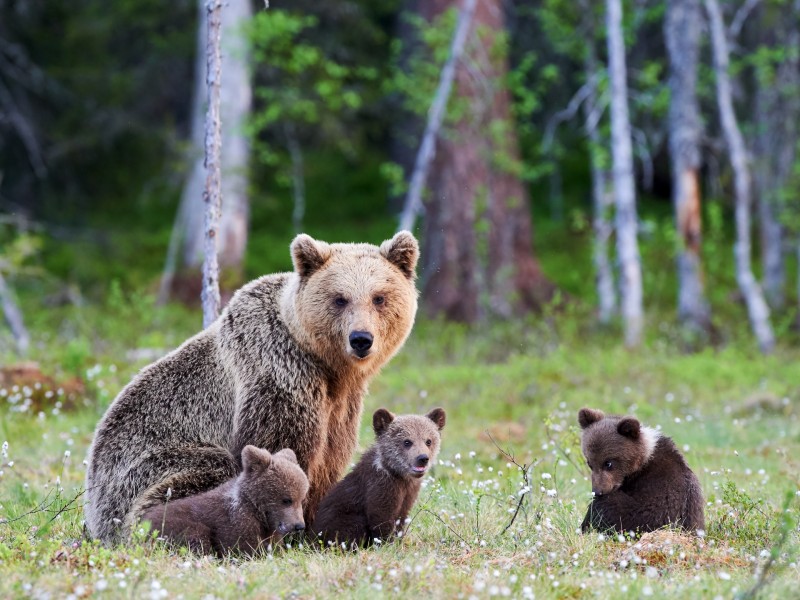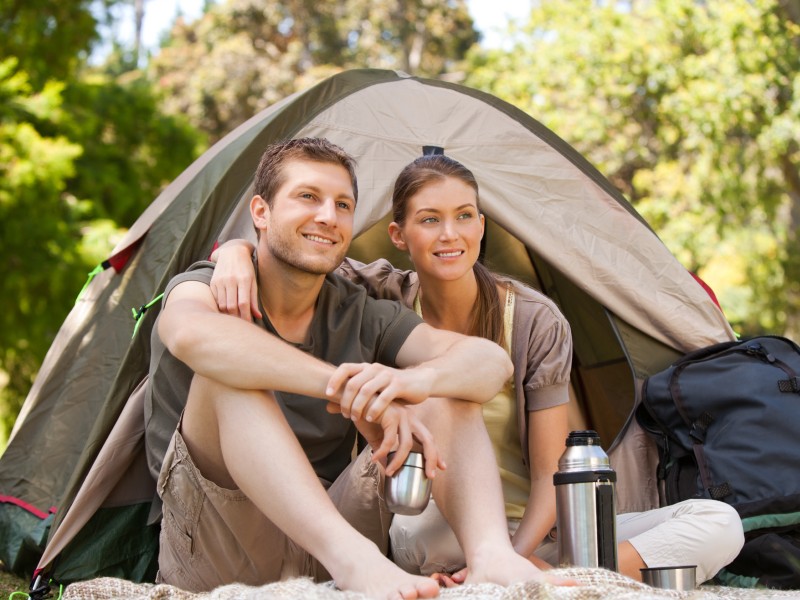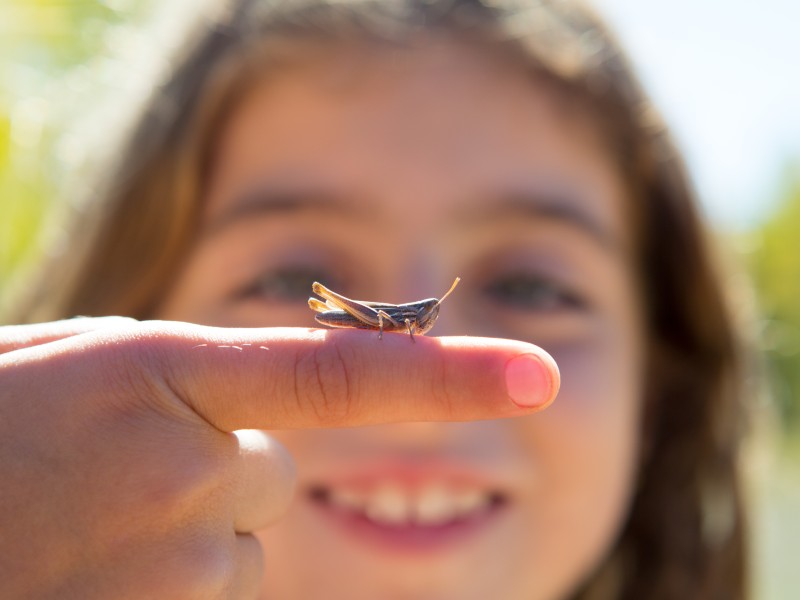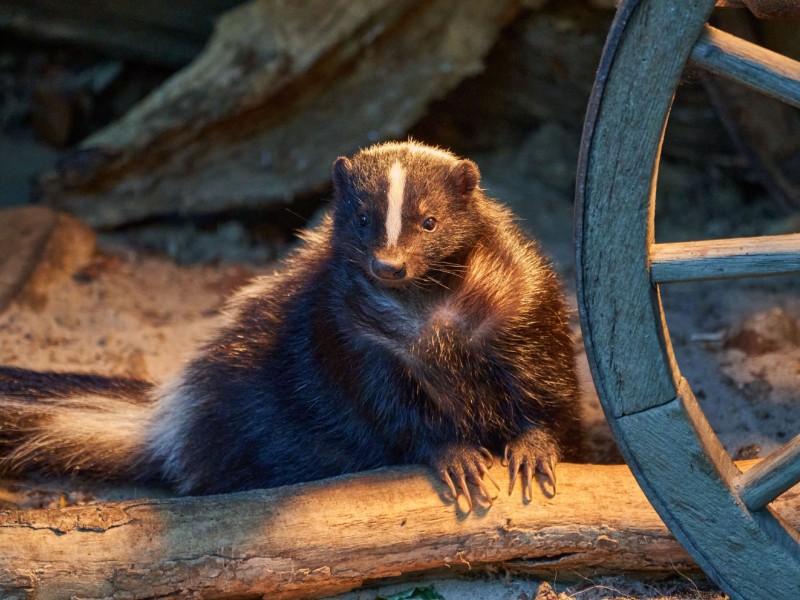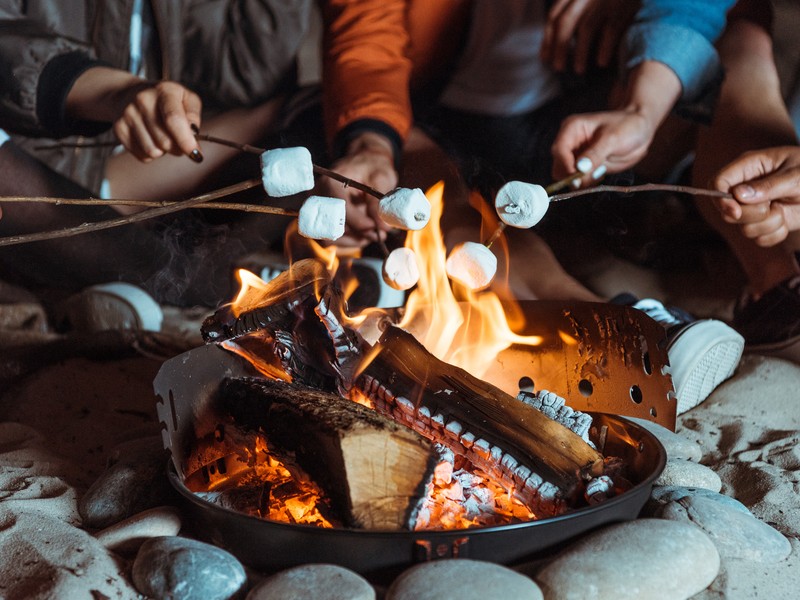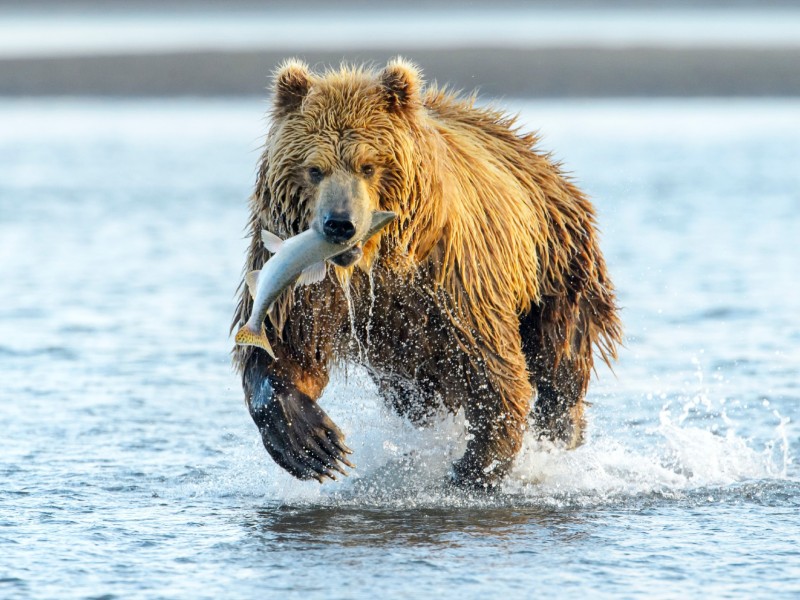If you decide to go on a camping trip and use your tent, you need to remember that you’re visiting the home of bears. You might not see a bear the entire time you’re camping, but there is a possibility that one might investigate your campsite while you’re in the area and hurt your safety.
A bear could get close enough to your site to destroy your tent, but if you take a few precautions, then you can decrease the chances of this happening.
There are a few different reasons why you want to bear-proof your campsite. One is to keep them from coming to your site altogether.
The other would be to make them want to visit another site that’s in the area so that they leave yours alone. If everyone who is camping in the same general area takes the same steps to keep bears away, then they will usually avoid people and continue hunting naturally.
Use Caution When Camping in an Area That Bears Are Known to Visit
When you begin looking for a campsite, you should try to find one that is in an area that is of little to no interest to bears that might be nearby. The site needs to be upwind of any natural food sources.
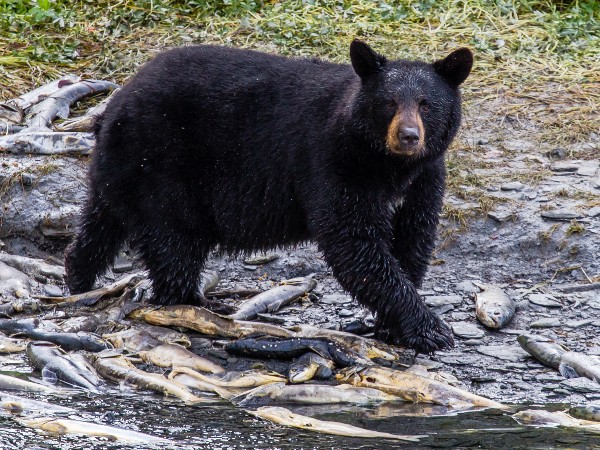
You should also try to avoid making your campsite right by a water source as many bears tend to look for fish in the water and enjoy bathing or playing in rivers and streams. Look for any signs of bears in the area before setting up your tent.
These signs often include droppings on the ground, prints, and scratches on the trees. If it looks like bears might call the area home, then you want to try to find another location for camping, as there’s usually a higher chance of a bear destroying your tent since you’ll probably be in the animal’s line of movement.
Because Of Scents, Use Caution When Camping & Make a Triangular Area Design to Keeps Close Bears Away
After finding just the right spot for your tent, you need to think about the other locations where you’re going to keep your food and toiletries and where you’re going to prepare your meals.
Create a triangle with your tent, a cooking area, and a canister that you hang in a tree that holds your food and scented items. You want to have about 100 feet between each area, as this is usually enough space for scents to disperse through the air.
You want to try to put your tent in an area that’s upwind of the food and cooking area as well so that the aromas don’t drift to where you sleep at night or where you relax during the day.
Hang What You Can in a Tight Bag, so It Doesn’t Attract Bears
Use caution and try to hang items in trees away from your camping area if bears are close by. If you don’t have a bear bag or a canister, you can use storage containers or waterproof bags that have an airtight seal.
Food should go in one container and toiletries in another. Bears tend to like items that are scented, such as shampoo and conditioner. Even though they help you stay clean and refreshed, they can also attract bears and other animals to your tent if you keep them inside with you.
Make sure the bag is hung high enough in the air so that the bear can’t reach it, as they usually can’t climb trees and can’t jump very high. If there’s nothing for bears to smell near your tent, then you can usually leave your trip with a tent that is still in one piece.
Make Sure You Clean Your Mess to Keep the Bears Away
Just as you would if you were at home and trying to keep pests from invading, you need to keep your campsite clean as well. This means that you’re going to have to keep foods properly stored when you’re not cooking and trash picked up off the ground.
Bears like rummaging through trash to find a meal, which is why you don’t need to make it easy for them to have access to trash while you’re camping. If bears don’t see a lot of food on the ground or smell aromas from food and trash, then they’ll usually leave you alone.
You should also keep your campfire clean. This means making sure there are little to no food scraps left in the fire after cooking and making sure there’s no burnt wood that is left around your site.
If you have any leftovers after cooking, then you want to find a proper receptacle to throw them away instead of just tossing them in the woods. You could also bury them in the ground far from your campsite to try to hide the smell of the food from bears and other animals.
One of the Ways to Clean Up Is to Make Sure the Dishes Are Washed Immediately
Your camping adventure might be a time for you to relax, but you’re still going to need to use caution and wash your dishes because of maybe close bears nearby. If you leave these items on a table or another surface or over your campfire, then it’s usually an invitation for bears to make a visit.
They want a little of what you have fixed and will usually try to get to it any way they can. Wash your dishes in a cooler of water that you pack with you for this purpose.
Gallon bottles of water can be poured into the cooler, and then the cooler emptied once the dishes are washed. Another option would be to use disposable plates and utensils so that the only thing you need to wash would be pots and pans.
Aluminum foil can be used to make foil pack meals so that you don’t have anything to wash if you use plastic utensils. However, you need to throw everything away as soon as you are done eating so that it doesn’t sit in the open and attract bears who might destroy your tent.
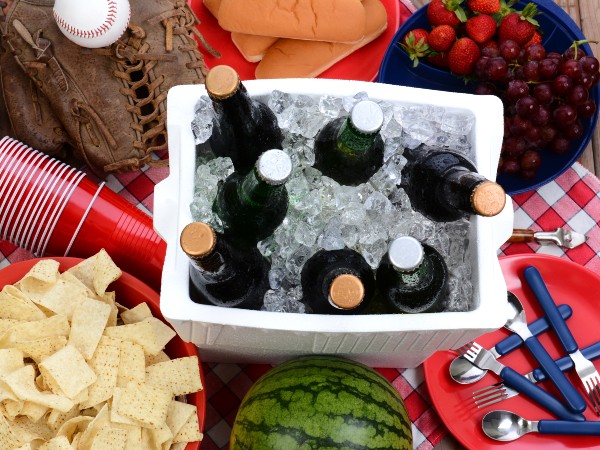
Explore the Great Outdoors with Us!
Food Selections Can Make or Break Coming Across Bears in Your Camp Area
When you’re making choices about the foods that you’re going to take camping, you need to consider the scents that bears are attracted to the most. They like sweet smells, such as maple syrup and honey.
They also enjoy those that are smoky, such as bacon. These are the aromas that bears will tend to set out to find if you cook them over an open fire or even if you prepare them on a grill or in another manner.
If you want to take these foods with you, then your cooking area needs to be away from your tent and upwind of any densely wooded locations, as this is usually where more bears tend to hide.
Although you might not want to eat healthy while you’re camping, fresh fruits, vegetables, and protein bars are usually the best options to have on hand as they aren’t as attractive to bears. However, you don’t need to keep any food in your tent.
If you don’t have a way to hang food in a tree, then keep them in your vehicle so that bears don’t smell them and try to destroy your tent.
Be Careful of the Smell That Food Leaves in Clothes Because It’ll Attract Bears
You’re probably not going to stay in the same clothes the entire time you’re camping. After cooking, you need to change your clothes so that the smells from the food that you cooked aren’t taken back to your tent.
If bears detect odors that they like on your clothing, they could think that it’s food and begin to destroy your tent in order to find out just what is inside. This could also lead to a bear trying to harm you in order to get closer to the scent that is on your clothing.
When you change clothes, make sure you do so in an area that isn’t located close to your campsite. This will help to keep the scents from the inside of your tent as well.
Avoid changing your clothes inside your tent, finding a bathroom that is nearby, or even changing inside your vehicle if you don’t like the idea of changing your clothes out in the open.
Making a Perimeter Around Your Camp Area Is a Requirement for Bear Safety
There are several caution tools that you can take with you when you go camping that can be used to make a perimeter to keep close bears away. Get a roll of wire that can be put in the ground.
You don’t need a lot, as all you want to do is keep your immediate area protected. There are also electric fences that you can put around your campsite to keep bears and other animals away.
Sprays can be used as well, but you need to use the spray each day as the aroma can sometimes disperse through the air too quickly in order for bears to be distracted by the scent.
These are only a few ideas for how you can protect your tent from a bear while you’re camping. Try to keep your site clean and free of things that will clearly attract bears.
Take the necessary steps to be proactive in keeping bears away before you even set up your tent so that you can have an enjoyable time while you’re outside in the woods.
Black Bear Right Outside a Tent (Video)
Related Questions
- What are the key factors when choosing a campsite to minimize bear encounters?
When choosing a campsite to minimize bear encounters, it’s crucial to consider the location and cleanliness of the site.
Choose a location away from bear food sources like berry patches, fish streams, or garbage disposal areas, and maintain a clean campsite by properly storing food and disposing of waste to avoid attracting bears.
- How does the ‘triangular area design’ help keep bears away from the campsite?
The ‘triangular area design’ for campsites helps keep bears away by separating the cooking, sleeping, and food storage areas, thus reducing the chances of bears associating human scent with food.
Keeping these areas at least 100 yards apart in a triangle, it minimizes the likelihood of bears wandering into the sleeping area attracted by food odors, thereby enhancing camper safety.
- Why is it important to hang food and scented items in a tree, and how high should they be hung?
Hanging food and scented items in a tree while camping or hiking is important to prevent attracting wildlife, particularly bears, to your campsite, which can pose a safety risk.
They should be hung at least 10-15 feet off the ground and 4 feet away from the tree trunk to make it difficult for animals to reach.
- How does the cleanliness of the campsite contribute to bear safety?
The cleanliness of the campsite significantly contributes to bear safety by not attracting bears with food smells or waste, as they are highly driven by their sense of smell.
A clean campsite reduces the chance of human-bear interactions, thereby ensuring safety for both humans and bears by preventing bears from becoming accustomed to human food, which can lead to aggressive behavior.
- What types of food are less likely to attract bears and how should they be stored?
Foods that are less likely to attract bears are those with less aroma, such as canned foods and dehydrated meals.
Regardless of the type of food, it should be stored in airtight containers and hung at least 10 feet off the ground and 4 feet away from the tree trunk to prevent bears from accessing it.
"Of all the paths you take in life, make sure a few of them are dirt."
-- John Muir
